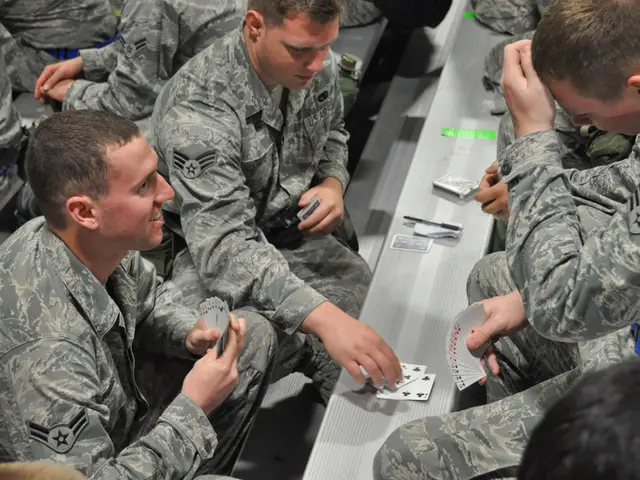Beauty pageant contestants in Miss England are now vying against digitally crafted replicas of themselves
The Miss England beauty pageant is stepping into the future with the introduction of an AI stage, where contestants compete by sending digital clones of themselves. This new category marks a significant shift in the glamour world, reflecting the growing importance of being marketable in virtual space.
Contestants spend two hours being filmed for the creation of their digital avatars, which can speak multiple languages, deliver presentations, and star in ad campaigns. One of the three contestants who signed up for the "Business Avatar Round" is Jessica Pliskin, a 23-year-old physics graduate and working model.
Pliskin sees this move as a necessary step in our changing world, stating, "I'd rather adapt than get lost." She spent hours filming with a tech company to create a hyperrealistic digital version of herself. The digital avatars are designed to book modeling gigs without the models being present.
However, not all contestants are convinced. Some, such as Phoebe Michaelides, have opted out of the AI experiment, citing concerns about authenticity, deep-fakes, and misinformation. Harriet Webster, a model and press officer, believes that the digital clones take away a model's personality.
The AI models are becoming more common in various sectors, including entertainment, politics, and self-image. Fashion brands, such as Levi's and H&M, faced backlash for using AI-generated models in campaigns. Musicians have sued AI startups for training voice models on copyrighted songs, and in 2023, Hollywood actors went on strike over AI replicas of their likenesses.
John Allard, CEO of MirrorMe, insists this isn't exploitation; it's opportunity. Organizers frame the AI round as a reflection of "the digital world our contestants are stepping into", positioning it as an entrepreneurial exercise as much as a beauty contest. Miss England director Angie Beasley defends the AI stage as "progressive."
Pageantry, like fashion, has always mirrored cultural values. The AI stage in Miss England is a preview of how AI technology is starting to enter every corner of our lives. If her AI twin lands the most contracts by October, Pliskin will advance to the pageant's finals. The future of beauty pageants, and perhaps the world, is becoming increasingly digital.








